Category: Branches of Philosophy
-
Nirvana vs Heaven: Escaping or Ascending?
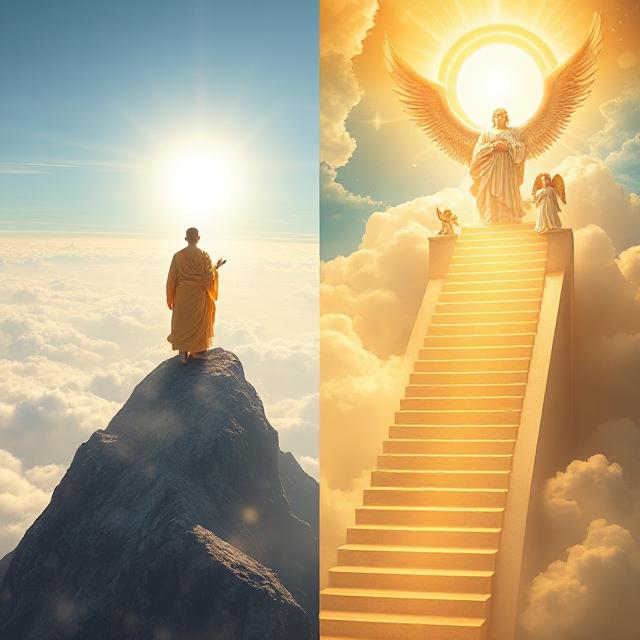
Nirvana vs Heaven: Escaping or Ascending? The human desire for transcendence has inspired many visions of what lies beyond the physical world. Among the most profound are the concepts of Nirvana in Buddhism and Heaven in the Abrahamic religions. These two ideas offer radically different visions of liberation: one as escape from the cycle of…
-
Eastern Monism vs Western Dualism: Mind, Matter, and Unity
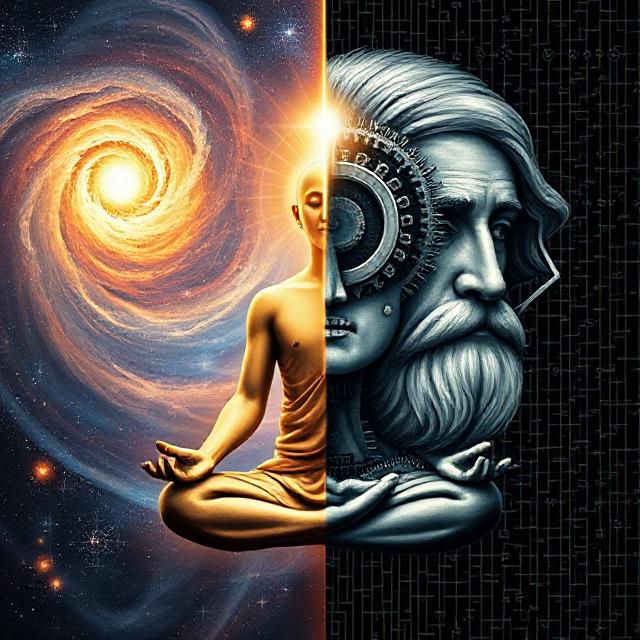
Eastern Monism vs Western Dualism: Mind, Matter, and Unity At the heart of philosophy lies one of its oldest and most enduring questions: What is the fundamental nature of reality? The contrast between Eastern monism vs Western dualism unveils two radically different metaphysical visions. While monism sees the cosmos as unified and indivisible, dualism divides…
-
Mindfulness in Buddhism vs Reason in Stoicism: Two Roads to Inner Mastery
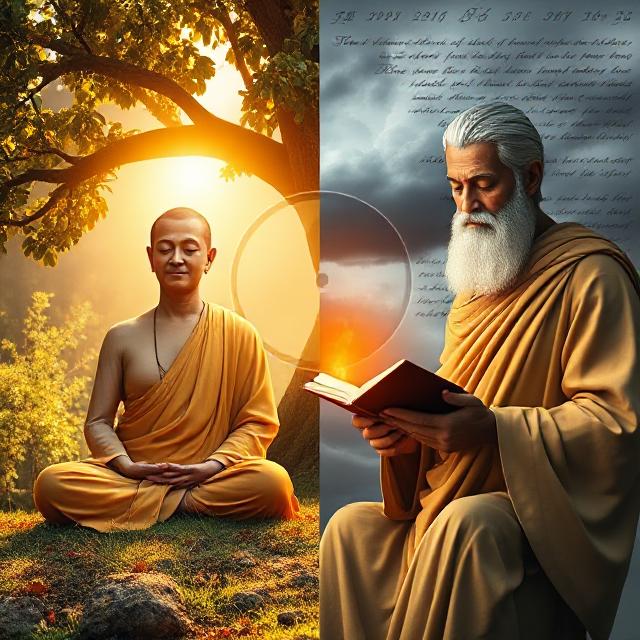
Mindfulness in Buddhism vs Reason in Stoicism: Two Roads to Inner Mastery The dialogue between mindfulness in Buddhism vs reason in Stoicism opens a compelling cross-cultural window into how human beings have long sought serenity amidst suffering. Both traditions aim to liberate the mind from destructive impulses, foster clarity, and cultivate a deeper sense of…
-
Yin and Yang vs Platonic Dualism: Two Paths to Truth
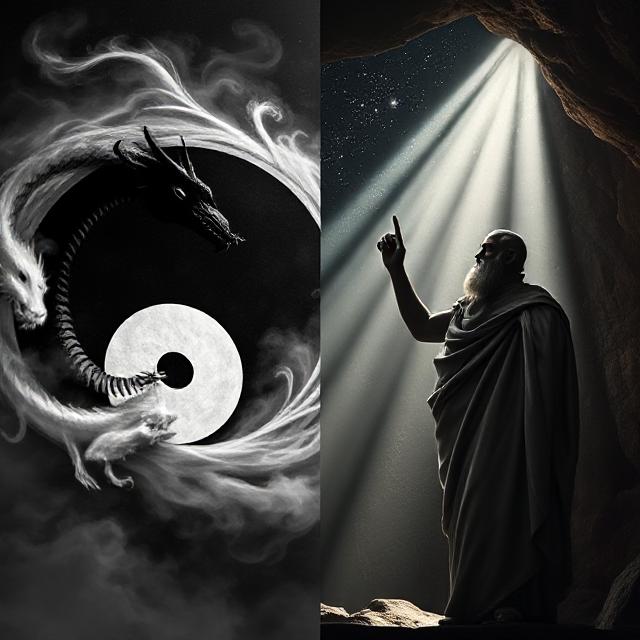
Yin and Yang vs Platonic Dualism: Two Paths to Truth Few concepts are as central to their respective philosophical traditions as yin and yang in Chinese thought and Platonic dualism in Western philosophy. Each offers a metaphysical model for understanding reality, identity, and morality, yet they arise from distinct cultural premises. To compare yin and…
-
Samsara vs Original Sin: The Cycle vs The Fall
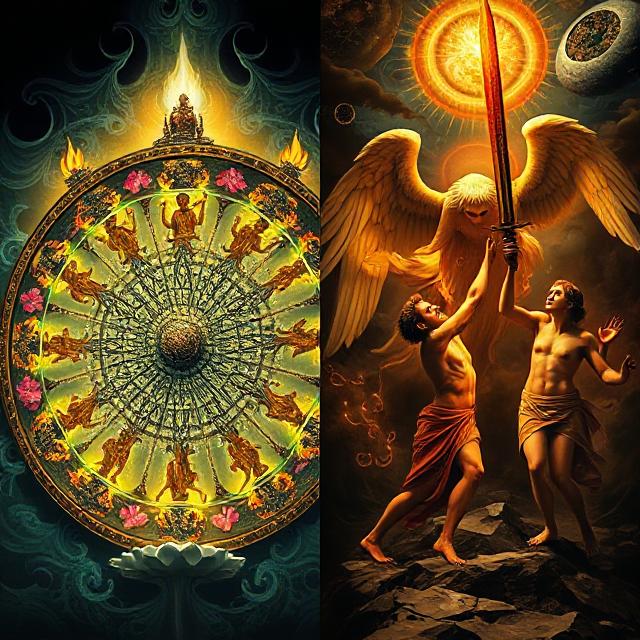
Samsara vs Original Sin: The Cycle vs The Fall Few concepts better highlight the divide between Eastern and Western theology than samsara vs original sin. These ancient doctrines underpin the way billions of people understand human suffering, moral failure, and the possibility of redemption. While samsara emphasizes the cyclical nature of existence and the bondage…
-
Laozi’s Naturalness vs Aristotle’s Virtue: Two Visions of the Good Life
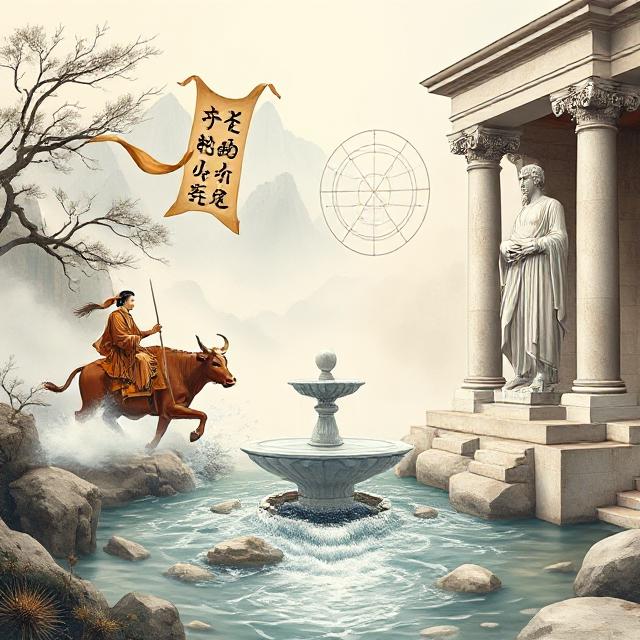
Laozi’s Naturalness vs Aristotle’s Virtue: Two Visions of the Good Life The comparison of Laozi’s naturalness vs Aristotle’s virtue reveals a profound tension in human philosophy: should we strive to cultivate our character through discipline and reason, or should we let go, returning to a more effortless alignment with nature? These two iconic figures represent…
-
Suffering in Buddhism vs Theodicy in Christianity: Why Do We Hurt?
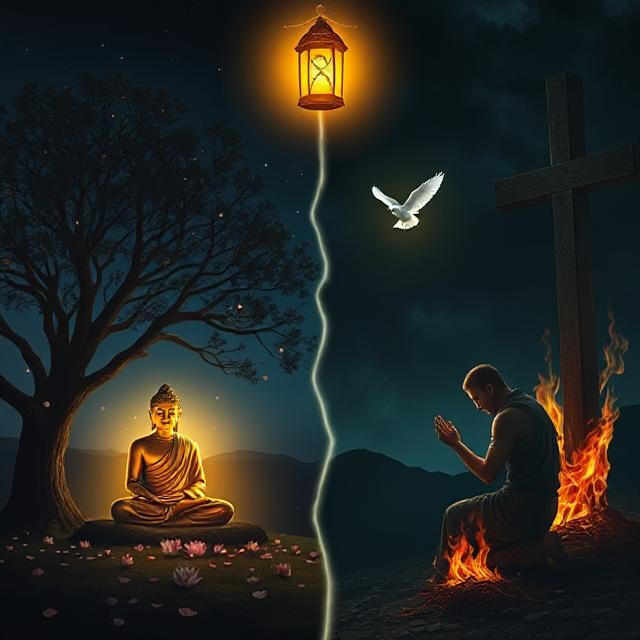
Suffering in Buddhism vs Theodicy in Christianity: Why Do We Hurt? The question of suffering has haunted every human civilization. Why do we suffer? Is there a purpose? Is it deserved, accidental, or redemptive? Suffering in Buddhism vs theodicy in Christianity reveals two distinct metaphysical frameworks—one that sees suffering as the natural result of attachment…
-
Collective Identity in Confucianism vs Individualism in Liberalism

Collective Identity in Confucianism vs Individualism in Liberalism The contrast between collective identity in Confucianism vs individualism in liberalism illustrates two divergent visions of selfhood, society, and morality. One sees the individual as fundamentally relational, formed and bound by duties and roles. The other sees the individual as a sovereign unit, possessing rights and autonomy…
-
Moral Duty: Confucius vs Kant
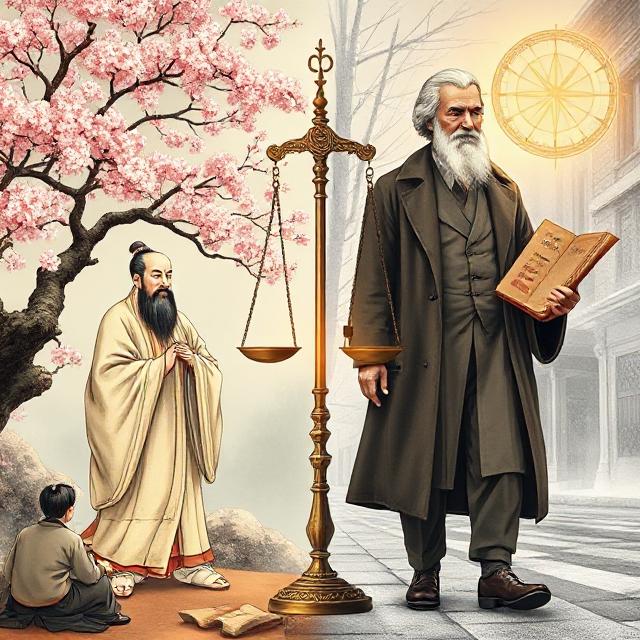
Moral Duty: Confucius vs Kant Moral duty is a cornerstone of ethical thought across civilizations. Yet how it is understood differs vastly depending on cultural and philosophical contexts. This post explores two monumental ethical frameworks: Confucianism from the East and Immanuel Kant’s deontological ethics from the West. The focus keyword Moral duty: Confucius vs Kant…
-
Logos vs Sunyata: Meaning and Emptiness
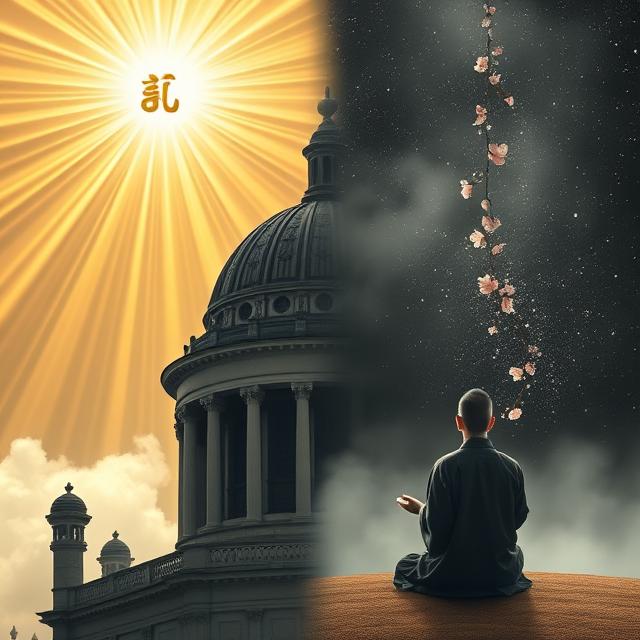
Logos vs Sunyata: Meaning and Emptiness Logos vs Sunyata reveals a philosophical and spiritual tension between the West and East: one seeks order through meaning, the other liberation through emptiness. In Christianity, Logos represents divine reason, the Word made flesh, and the intelligible structure of reality. In Mahayana Buddhism, Sunyata or emptiness represents the lack…
